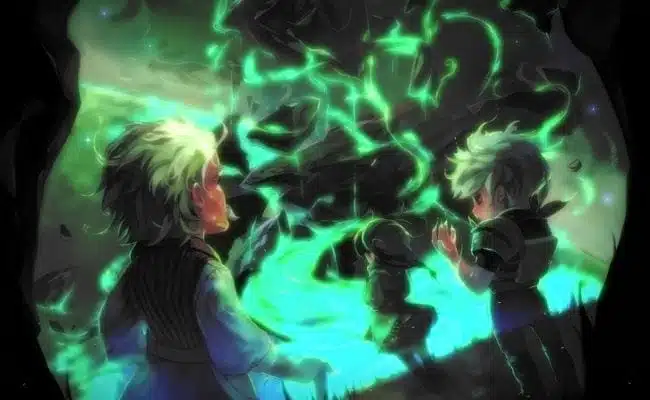A couple of weeks ago here at PopMatters, Eric Swain wrote about a more complex form of moral choice in games.
It’s not a question of right or wrong, but a question of priorities. The player is offered up two rights and asked to make a choice between them … The morality here isn’t based on abstract rules, but on the individual player — what they would do and why is up to them” (Eric Swain, “More Thoughts on a More Complex Form of Moral Choice in Video Games”, 24 June 2014)
I agree with everything Swain has written, but I’d also like to add an important caveat to the conversation. These kinds of complex moral choices, the kind that force us to choose between two philosophical truths that will go on to define who we are, what we value, and how the game is about what we value, these kinds of choices are best implemented at the end of a game.
Let’s look at the game that started this discussion: The Wolf Among Us episode three, “A Crooked Mile”. The choice to burn or spare Auntie Greenleaf’s tree, as Eric wrote, is great because it plays with multiple thematic ideas at the same time. There are issues of economy and character relationships that you have to consider in addition to general ethical concerns. As a result, when you make a decision at that moment, you’re defining something important within the game. You’re defining what it’s about, and because players can interpret their choice in a multitude of nuanced ways, A Crooked Mile can ultimately be about a multitude of things.
That’s a lot of pressure to put on episode four, “In Sheep’s Clothing”, and unsurprisingly the game didn’t live up to all the expectations and promises that the aforementioned scenario suggested. I wrote about this last week, considering how episode four didn’t follow through on the thematic and character arcs that I thought the game had established in episode three. When following up on that major moral decision, the game had to take all those multitudes of possible interpretations into consideration. Developers can’t possibly design for all possible interpretations, so some disconnect for some players was inevitable.
Then Eric mentions Gunpoint, and how a moral choice at the end of that game is effective because it asks us to choose not between good and evil or right and wrong but between truth and justice. By making us choose between two morally good things, Gunpoint gives the choice a weight and meaning that would be missing in the typical good/evil dichotomy. Again, we have a nice complex choice that defines what the game is about, but what makes Gunpoint better in this regard than The Wolf Among Us is that the game ends after we make that choice. This seems, to me, to be the better design decision because it means the game doesn’t have to follow up on a multitude of moral interpretations.
Gunpoint isn’t the only game to end with a complex moral choice. Multiple games have done this, and they’re all the better for it.
At the end of Bastion, you’re faced with two moral choices in quick succession. The combinations of these two choices are all variations on a single idea — how people react to disaster — but each variation prioritizes a different emotional reaction. Are you driven by revenge, forgiveness, regret, or optimism?
Rockstar has ended the last couple Grand Theft Auto games with a choice that determines the theme of that game. In GTA IV we choose whether to take revenge on an antagonist or to accept his bribe. There are, of course, horrible consequences for either decision, but those decisions also determine whether GTA IV is a violent rebuttal of capitalism, or a violent confirmation of the realities of mob life.
In GTA V we can choose to kill our friends or unite against the man giving the kill order. In this way, the game can either be a uniting call for class warfare, an argument for economic security over friendship, or a warning about the corrupting influence of money (G. Christopher Williams and I talked about this in more depth on our Moving Pixels podcast about GTA V).
At the end of The Swapper we choose to either “swap” into the body of a rescue worker or jump into a gorge and kill ourselves. The decision is essentially an argument about the importance of survival or justice and whether ignorance excuses crimes. Were our killings justified because we didn’t know better and we needed to survive?
At the start of The Witcher 2 we’re framed for the murder of a king, and we spend the rest of the game trying to clear our name. After being swept up in a massive political conspiracy, we finally confront the real assassin and… talk. Or we can talk if we choose to. We can also just fight or walk away. At this point the conflict is over, and the story is over. Whatever we do now, we do for personal closure. In this moment, we get to choose which of our many motivations is most important: revenge for being framed, justice for the king, or a desire to understand this whole mess.
Ending a game with a complex moral choice allows a single game to have multiple thematic conclusions, and it’s just easier on the writers. If there’s a clear trend throughout all of these complex choices, it’s that they’re climactic in nature. They represent a capstone moment. They’re the player making a definitive statement about something. Such moments make for great endings, but dangerous cliffhangers.

